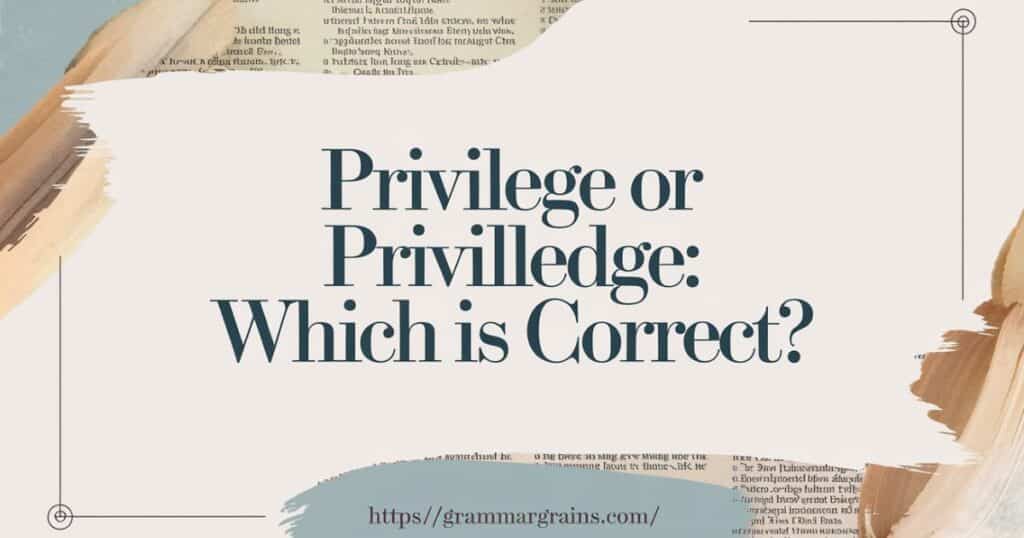Spelling errors are common and can cause confusion, especially in the English language. One frequent mistake is the misspelling of privilege as priviledge, with the latter being incorrect.
This mix-up often happens because the pronunciation differs from its correct spelling.
Such errors are not only frustrating but can also undermine your credibility in professional or academic writing.
But why do these mistakes occur, and how can you avoid them?
The Origins of Privilege
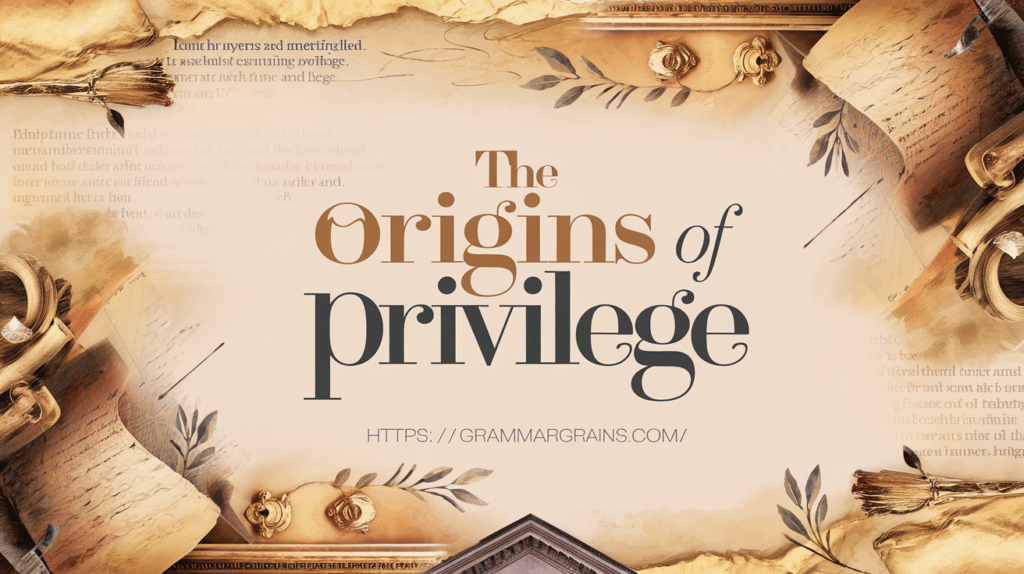
The word privilege has roots in Latin.
It comes from the Latin word privilegium, which referred to a law or rule that benefited an individual or a group of people.
This Latin term is a combination of privus (private) and lex (law). When this word entered the English language, it was spelled privilege, maintaining a single “e” after the “i.” Over time, however, people began to mistakenly insert an extra “e” due to phonetic similarities. The incorrect form priviledge is a common misspelling that many people fall into, believing the pronunciation of the word requires it.
The confusion surrounding privilege and priviledge can also be attributed to the complexity of English orthography.
The English language is filled with exceptions to its own rules.
For example, the word “sugar” does not follow the typical rules for pronunciation and spelling, leading to confusion when learners of the language encounter it.
Similarly, privilege may sound as though it should contain that extra “e,” but its correct spelling is with only one “e.”
Such inconsistencies in English spelling are what often trip people up.
Why Spelling Mistakes Happen
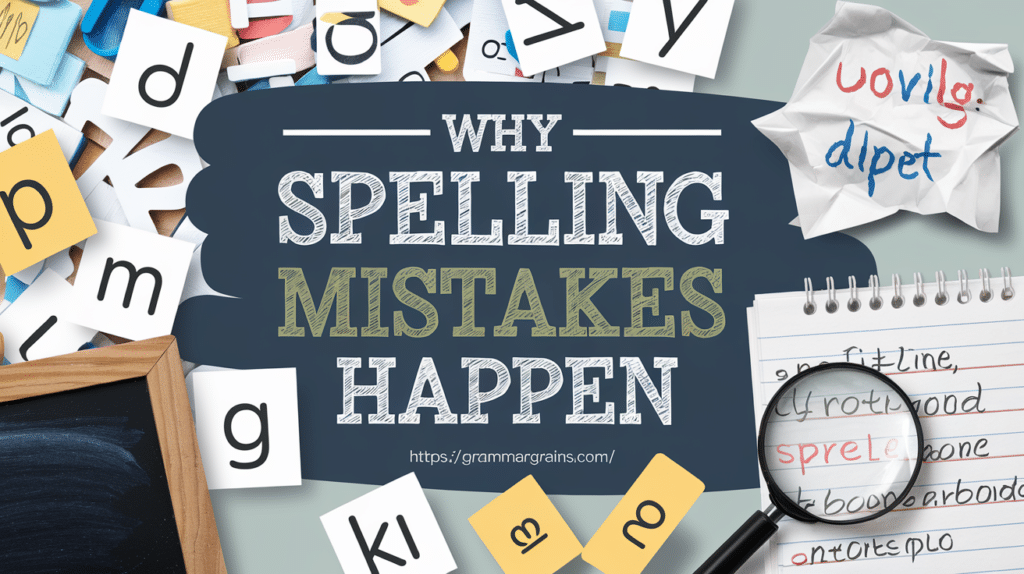
Understanding why errors like priviledge occur can help us avoid them in the future.
Often, spelling mistakes occur because we rely too much on how words sound rather than how they are spelled.
This happens because of phonetic confusion, a situation in which we assume a word is spelled as it sounds.
This is especially true when the word is spoken quickly or when its pronunciation doesn’t perfectly align with its orthography.
This is why many people mistakenly write priviledge instead of privilege.
Also, the advent of digital communication and the use of tools like spellcheckers have made it easier to overlook such misspelled words.
While spellcheckers are helpful, they don’t always catch words that are spelled correctly but used incorrectly in context.
This can be problematic, especially in professional communication where attention to detail is crucial.
To avoid spelling errors, one must remember that tools like spellcheck should not replace careful proofreading and a solid understanding of spelling rules.
The Importance of Correct Spelling
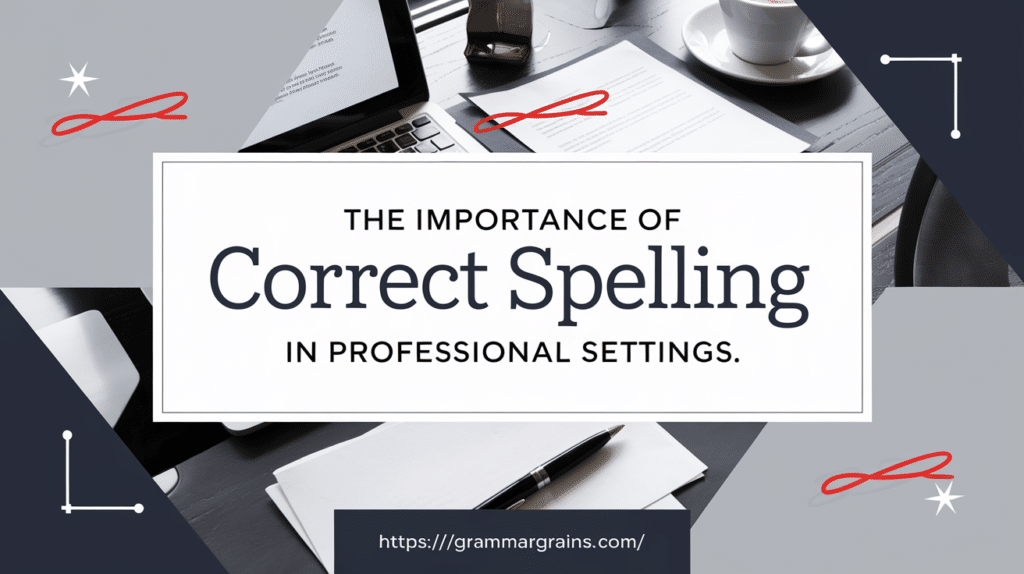
Professional Settings
In professional communication, the use of the correct spelling is essential.
A simple spelling mistake like writing priviledge instead of privilege can affect your credibility.
It might make you appear less attentive to detail or less proficient in the English language.
This is especially important in business writing, legal documents, and official communication, where clarity is paramount.
For example, a legal professional using priviledge instead of privilege may risk misinterpreting concepts like attorney-client privilege, which is a critical legal right.
Such small errors in spelling can lead to misunderstandings and might even have legal implications.
Therefore, it’s important to get familiar with correct spelling and ensure that your writing is free from misspelled words.
This attention to detail will elevate the professionalism of your written communication.
Tools and Techniques for Avoiding Spelling Errors
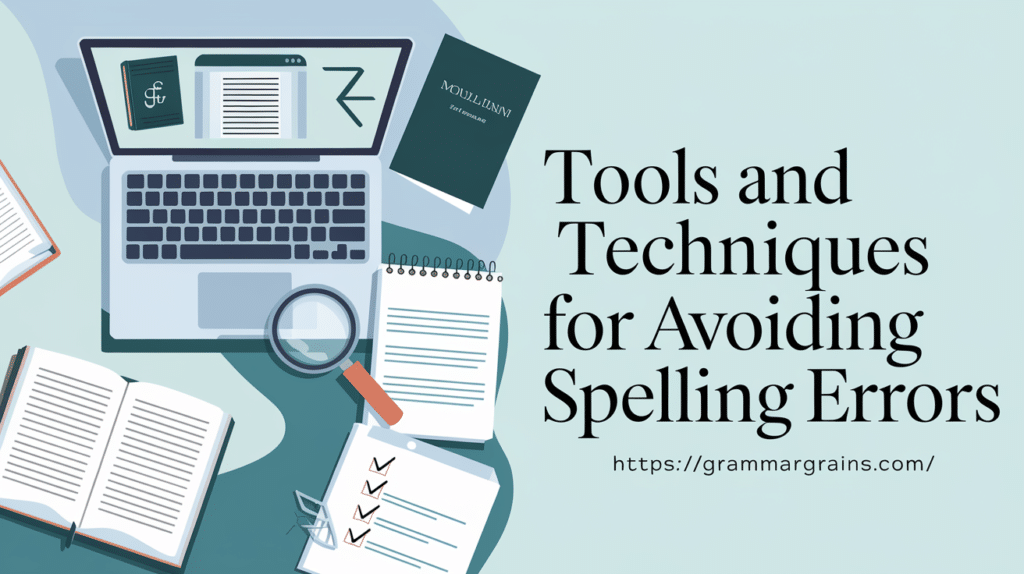
To avoid making errors like priviledge, it’s helpful to understand the tools and techniques available.
One effective tool is a spell checker. Spellcheckers can automatically highlight and suggest corrections for misspelled words.
However, it’s important to recognize that spellcheckers don’t always catch every error, particularly if the word is spelled correctly but used in the wrong context.
Another technique to improve spelling accuracy is to learn mnemonics. These are simple memory aids that help reinforce the correct spelling of words.
For privilege, one might remember the mnemonic:
“Privileged people get their own laws,” reinforcing the idea that privilege contains just one “e” after the “i.”
Regular practice and reading will also help you familiarize yourself with the correct spelling of tricky words.
You can also make use of spelling lists to build your vocabulary and internalize common spelling patterns.
| Correct Spelling | Common Misspelling | Memory Aid |
|---|---|---|
| privilege | priviledge | “Privileged people get their own laws.” |
| correct spelling | misspelled | “Always check your work.” |
| professional writing | casual communication | “Precision equals professionalism.” |
How to Use Privilege in Different Contexts
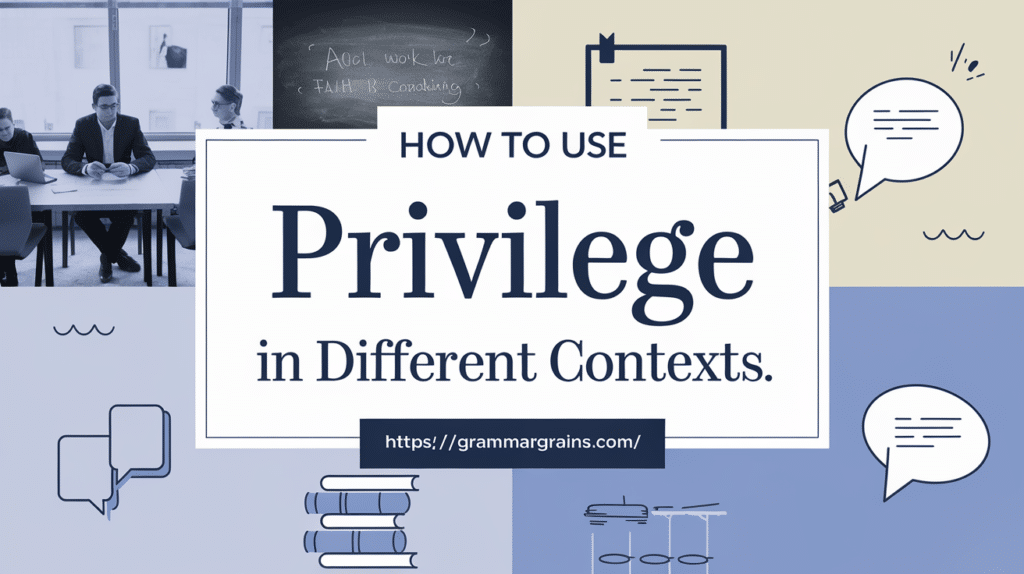
The word privilege can be used in several contexts.
In social justice discussions, privilege refers to the advantages or rights that certain groups have over others.
These might be based on race, gender, or socioeconomic status.
Understanding the proper spelling of this word is essential in such discussions, as misusing it can affect how seriously your argument is taken.
In legal contexts, privilege often refers to special rights or protections granted by the law.
For instance, attorney-client privilege protects the confidentiality of communications between an attorney and their client.
Privilege can also refer to administrator privileges in digital systems, which grant users specific rights and permissions.
In these professional or technical contexts, using the correct spelling of privilege is essential for maintaining clear and accurate communication.
The Impact of Misspelling Words
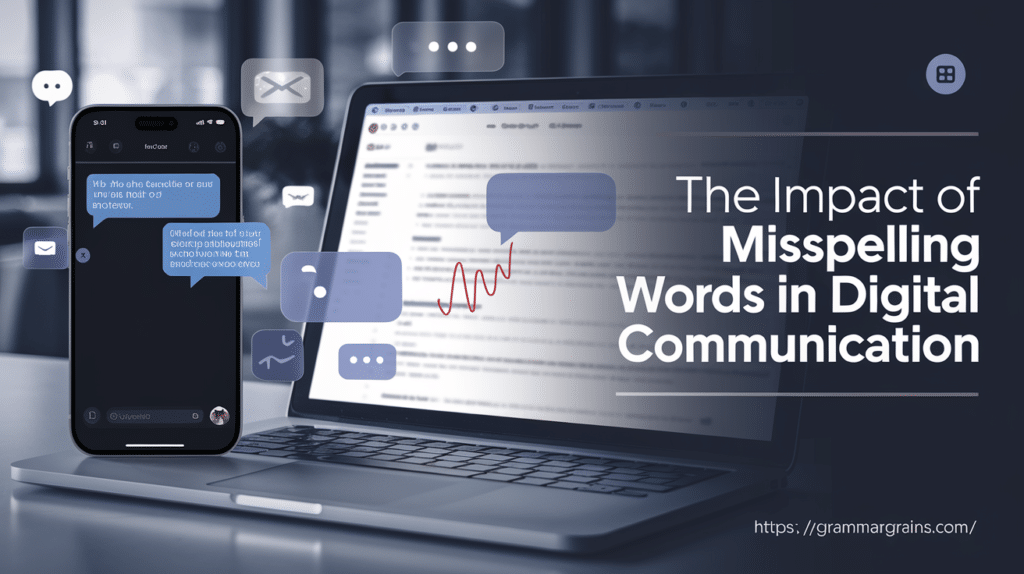
Digital Communication
In digital communication, the use of misspelled words like priviledge can have far-reaching consequences.
Online conversations, emails, and social media posts often form the first impression that someone has of you.
While people may overlook spelling mistakes in casual messages, professional writing demands accuracy.
A simple typo in a work email could be seen as a sign of carelessness or lack of professionalism.
To avoid this, it’s important to proofread your messages before sending them.
Most digital platforms come equipped with spellchecking tools that can catch errors. However, relying solely on them is not enough.
You should also take the time to read over your text and ensure that everything is correct.
This is especially true for words that sound similar but are spelled differently, like privilege and priviledge.
Conclusion
In conclusion, understanding the correct spelling of words like privilege and avoiding misspelled words can greatly enhance your communication. Whether you’re writing an email, a legal document, or posting on social media, the correct spelling of privilege reflects your attention to detail and professionalism.
By understanding the origins of the word, practicing with tools like mnemonics, and using spellcheckers, you can minimize spelling mistakes and ensure your communication is clear and effective.
Improving your spelling habits not only boosts your confidence but also strengthens the impact of your writing. When you know how to avoid common errors like priviledge, you’ll convey your message more effectively and maintain a higher standard in all forms of written communication.
FAQs
What is the correct spelling, privilege or priviledge?
The correct spelling is privilege, with only one “e” after the “i.”
Why do people often misspell privilege?
People often misspell privilege as priviledge due to phonetic confusion and adding an extra “e” based on pronunciation.
How can I avoid misspelling privilege?
To avoid misspelling privilege, remember it comes from the Latin word privilegium and always check for the correct spelling before submitting any written work.
Is there a tool to help avoid spelling mistakes?
Yes, spellcheckers and grammar tools can help highlight spelling errors, but it’s important to proofread your text as well for context.

Taila Lucy, an expert content writer at Grammar Grains, brings 4 years of experience crafting engaging pieces on grammar. Her work delves into synonyms, antonyms, slang, puns, and poetry, helping readers master English with creativity and flair.
